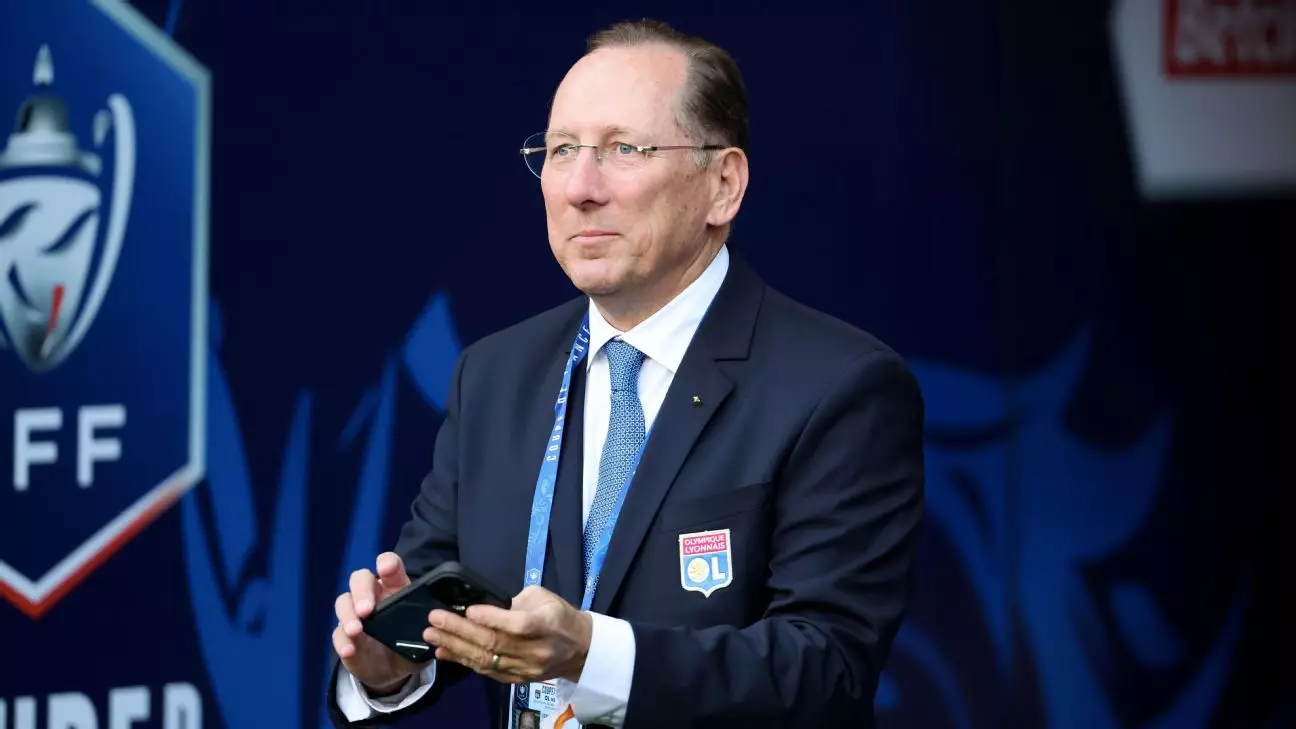American businessman John Textor’s recent announcement to reduce his direct management role at Lyon following the club’s relegation to Ligue 2 marks a significant turning point—not only for the club but for his broader football investment strategy. Textor, who acquired Lyon through his Eagle Football Group, openly admitted his struggles navigating the intricate and often opaque governance frameworks of French football. Unlike his apparent acumen on the playing field, Textor has confronted a steep learning curve in French football politics, which ultimately contributed to the club’s demotion due to financial irregularities.
While relegation due to on-pitch performance is always painful, losing status because of financial and administrative hurdles is arguably more concerning, highlighting a disconnect between sporting success and institutional compliance. Textor’s candid reflection—that he was better equipped as a capitalist focused on operational aspects than as an operator within French regulatory confines—speaks volumes about the challenges foreign investors face when entering football ecosystems imbued with local customs, legal structures, and financial controls unique to each country.
Financial Stability in Question, Yet Not Broken
Despite the DNCG’s decision to relegate Lyon over financial issues, Textor insists the club remains financially robust, boasting significant liquidity. This contrasts sharply with the label of financial mismanagement suggested by the French watchdog’s ruling. His defense includes highlighting Lyon’s compliance with UEFA’s stringent financial sustainability reviews, which they successfully passed, suggesting that the problems flagged are of a niche, procedural sort rather than systemic insolvency.
This discrepancy underlines a broader issue in European football governance: the coexistence of multiple regulatory bodies with varying criteria can create confusion and conflicting verdicts on a club’s true financial health. Textor’s acknowledgment that certain “elements” in his financial approach displeased local authorities points to possible failures in adapting to French financial regulations—a gap that could have critical repercussions for clubs overly reliant on external investors unfamiliar with the local landscape.
Shifting Priorities Within Eagle Football Group
Faced with these obstacles, Textor is recalibrating his focus, transitioning responsibilities for Lyon to partners within Eagle Football Group and turning attention towards other assets, particularly Botafogo in Brazil. This strategic pivot suggests an acceptance that his limited patience or expertise for French football’s institutional complexities necessitates delegation, ensuring the group’s portfolio continues to grow without jeopardizing individual club operations.
Interestingly, Textor recently divested a significant stake in Crystal Palace, signaling a reshuffle in his UK football holdings. He hinted at exploring new acquisitions to replace that investment, emphasizing a desire to maintain a collaborative, multi-club ownership model. This broad ambition to create synergistic partnerships across continents highlights a forward-looking vision for Eagle Football Group, balancing risk and opportunity in diverse football markets.
Lessons in Football Investment: Beyond Capital Infusion
John Textor’s experience at Lyon illustrates a critical lesson often overlooked by investors entering football: deep capital injections and on-field success don’t automatically secure seamless integration into national football ecosystems. The multilayered nature of football governance demands nuanced understanding and engagement with local customs, financial watchdogs, and fan expectations. Failure to navigate these facets can lead to severe consequences, as Lyon’s relegation painfully demonstrates.
The cultural and regulatory friction Textor faced underscores the importance of combining financial muscle with savvy political and administrative strategy. Investors must build not only balance sheets but relationships and local expertise to thrive in the complex, passionately defended world of football club ownership. Textor’s semi-admission of “not being good at the politics of France” encapsulates this disconnect: football ownership is as much about diplomacy and governance as it is about money and competition.
Prospects for Lyon and Eagle Football Group
Moving forward, Lyon’s future will rest on the ability of Textor’s delegated partners to mend fences with French authorities and stabilize club governance. The club’s sporting pedigree, recently demonstrated by consistent European competition qualifications, offers a strong foundation. Yet unless governance structures improve, the shadow of relegation—and its financial consequences—may extend.
For Eagle Football Group, selective focus on its broader portfolio, particularly Botafogo, suggests a diversification strategy to mitigate country-specific risks. Textor’s expressed interest in a new UK club acquisition also indicates adaptability and resilience, suggesting that despite setbacks, the group remains driven to innovate and expand its global footprint, but with greater regard for the regulatory and cultural environments it integrates into.
John Textor’s Lyon chapter thus serves as a cautionary tale and a learning opportunity, highlighting the indispensable balance between capital, local savvy, and strategic delegation in modern football investment.

